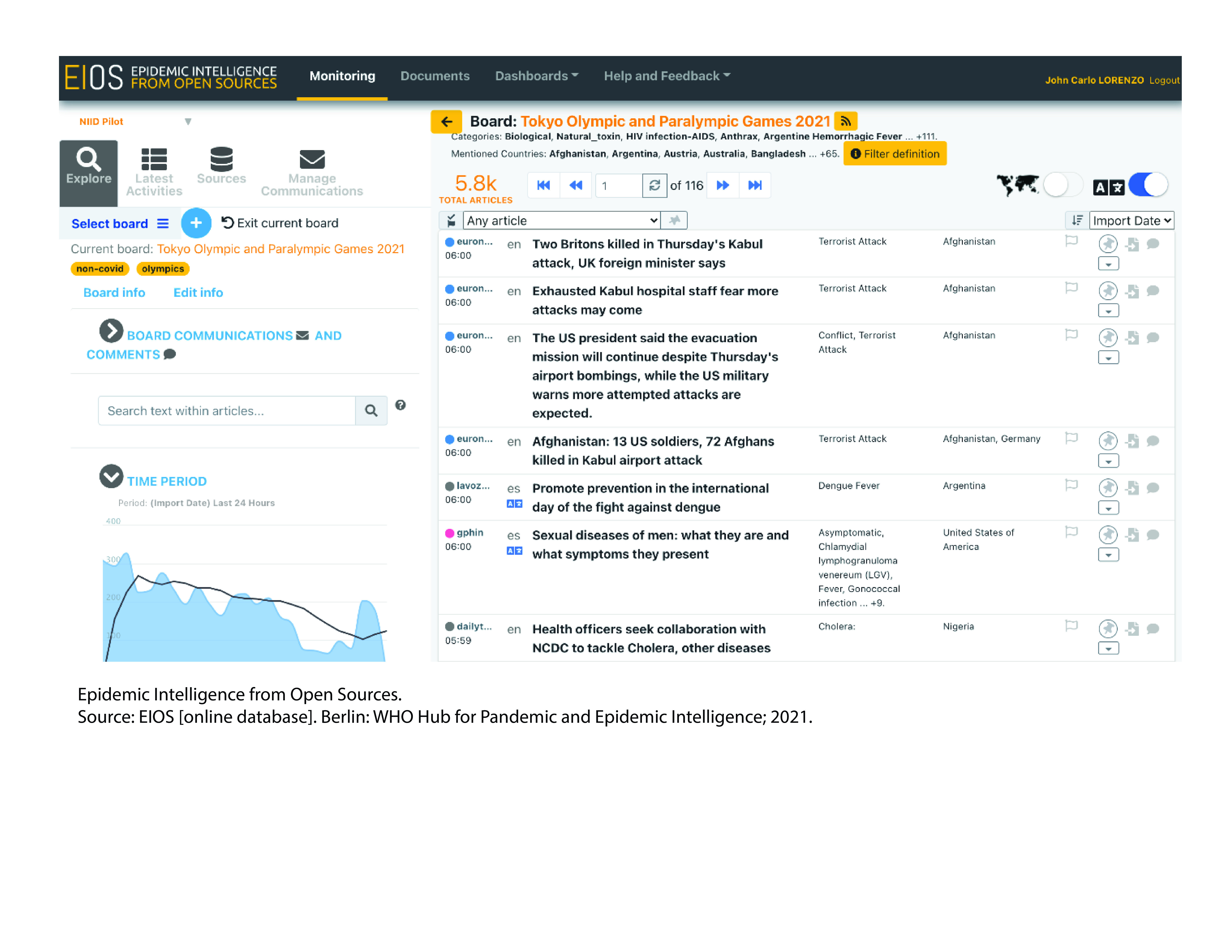Use of Epidemic Intelligence from Open Sources for global event-based surveillance of infectious diseases for the Tokyo 2020 Olympic and Paralympic Games.
IF 1
Q4 PUBLIC, ENVIRONMENTAL & OCCUPATIONAL HEALTH
引用次数: 1
Abstract
The establishment of enhanced surveillance systems for mass gatherings to detect infectious diseases that may be imported during an event is recommended. The World Health Organization Regional Office for the Western Pacific contributed to enhanced event-based surveillance for the Tokyo 2020 Olympic and Paralympic Games (the Games) by using Epidemic Intelligence from Open Sources (EIOS) to detect potential imported diseases and report them to the National Institute of Infectious Diseases (NIID), Japan. Daily screening of media articles on global infectious diseases was conducted using EIOS, which were systematically assessed to determine the likelihood of disease importation, spread and significant impact to Japan during the Games. Over 81 days of surveillance, 103 830 articles were screened by EIOS, of which 5441 (5.2%) met the selection criteria for initial assessment, with 587 (0.6%) assessed as signals and reported to NIID. None of the signals were considered to pose a significant risk to the Games based on three risk assessment criteria. While EIOS successfully captured media articles on infectious diseases with a likelihood of importation to and spread in Japan, a significant manual effort was required to assess the articles for duplicates and against the risk assessment criteria. Continued improvement of artificial intelligence is recommended to reduce this effort.


利用开源流行病情报为2020年东京奥运会和残奥会开展基于事件的全球传染病监测。
本文章由计算机程序翻译,如有差异,请以英文原文为准。
求助全文
约1分钟内获得全文
求助全文
来源期刊

Western Pacific Surveillance and Response
PUBLIC, ENVIRONMENTAL & OCCUPATIONAL HEALTH-
CiteScore
1.70
自引率
0.00%
发文量
23
审稿时长
15 weeks
 求助内容:
求助内容: 应助结果提醒方式:
应助结果提醒方式:


